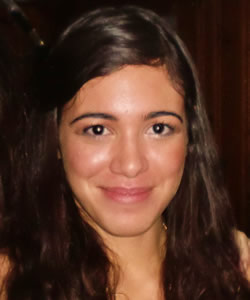Coming to Spain I was under the notion that most people would be very Catholic and feared that I, only culturally Catholic with a liberal practice of my faith, would be too open-minded for my host family. Yet, as I spent more time in Spain, my views on whether Spain should be thought of as a “Catholic country” would waver more than a political party’s platform.
It was dinner time on the third day of Lent, as I sat down across the table to my candid host mom, “Have you given anything up for Lent?,” she asked, as I as sat there caught by complete surprise, rationalizing whether to speak the truth or not. “No, I completely forgot that Lent had started,” I blurted out, followed by an attempt at a true smile of innocence. She acknowledged my attempt to play off my lack of Catholic practice and launched straight into what the true meaning of fasting is in the Catholic faith. “There are people out there who are less fortunate than most of us that cannot always eat, which is why God asks his people of all faiths to participate in fasting in order to remind them.”
I found this comment to be inconsistent with where she stood in her Catholic practice from other comments. A couple of days before, she had given me a dissertation on how much harm the Catholic Church has caused to this day and how it is always covered up.
During Franco’s regime, restoring the Catholic religion was a priority. The teaching of the Roman Catholic faith was made mandatory, churches were subsidized by the government, and various privileges were granted specifically to the Church. Franco had found the perfect tool to use in order to keep control over the Spanish people, because if there was one power the people respected, it was the Church.
That soon changed as people started to see the civil liberties granted to those involved with the Church. Citizens started to associate the Church as part of the Franco regime since they saw it only taking the benefits of the horror that was going around the country. The Church did speak against the wrong of Franco’s actions a few years into the regime, but the harm of association had been made.
In modern day Spain, you see the effects that this has had on people’s perception of religion. The establishment that is the Church is no longer followed blindly by Spanish people; instead, they have learned about the mistakes and lost confidence in what was once to them an unstained image of righteousness.
Today the generation that lived during Franco’s regime has kept their Catholic faith and practices, still believing in the teachings of the Church, just not the establishment itself. This in turn has passed on to children of these individuals. The next generation learns firsthand of the terrible things that happened, acquiring mistrust of any control over the people as a threat. As a result, Spanish people are culturally Catholic, but not religious. Similar to my host mom, people in Spain have held on to their Catholic religion, but not to the church. About 73 percent of the Spanish people identify as Catholic, but a mere 25 percent attend church.

